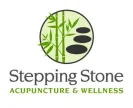![]()
This post is copied from our older, original blog. Original post date 3/29/2011.
By Marcie Bower, Lic.Ac.
In Traditional Chinese Medicine, we believe that the first medicine for any problem is food. The theory surrounding the foods we eat is in many ways as complicated as the theory for Chinese Herbal Medicine or Acupuncture! One of the most important principles that Chinese Nutritional Theory teaches us is that we are at our most healthy when we are in balance with the world around us. This means that we should change our dietary habits seasonally, just as the world outside our window changes.
Springtime is a time for rebirth, rejuvenation, growth, and cleansing. In the cycle of the seasons, spring represents youthfulness. We emerge from the dark, gloomy, short days of winter, ready to feel lighter and more free – and our meal choices should reflect this innate human response to the season.
Thus, spring eating should be lighter than winter eating. Stay away from the heavy meats and carbohydrates that you used to warm yourself during the winter cold. If you eat meat, focus instead on lean meats, local poultry, and fresh fish. Add more vegetables into your diet, particularly leafy green vegetables such as kale, mustard greens, watercress, spinach, and chard.
Your body is naturally cleansing itself during the spring…it will do this automatically, without you having to do anything. But you can definitely help it along in this process by staying away from processed foods, refined sugars, and heavy meals. Your springtime diet should emphasize the new green plant life that is springing forth, including leafy greens, young plants, fresh vegetables, and cereal grains. You can add in foods and spices that have a pungent flavor…the pungent flavor in TCM is expansive, and the foods will circulate your energy, and “create a personal spring within” the body (says Paul Pitchford, author of Healing with Whole Foods.) Recommended pungent foods include onions, leeks, garlic, watercress, mustard greens, turmeric, basil, fennel, marjoram, rosemary, caraway, bay leaf, cumin, horseradish, mint, and dill. Sprouted grains are also beneficial.
In TCM, we ALWAYS think that food should be cooked. The digestive system has a much easier time digesting warm and cooked foods. However, within this paradigm, spring foods should be less cooked than their fall or winter counterparts. Paul Pitchford suggests that in the springtime, vegetables should be cooked only a short time, so that their inner parts are not thoroughly cooked.
When cooking any food in the spring, cook for a shorter time at higher temperatures. If using cooking oil, be sure that you use an appropriate medium-high-temperature cooking oil, such as grapeseed, sesame, or virgin olive oil. (Extra virgin olive oil has a lower smoke point, meaning that it actually goes rancid when cooked at high temperatures.) When cooking with water, try steaming rather than boiling vegetables.
In the spring, many people experience symptoms of a Liver energetic imbalance, since the spring is related to the Wood element, and Liver is the wood energetic organ. Like new tree branches and buds bursting forth in the spring, the Liver desires to move outward, to expand, to explore, and to grow. When the Liver is constrained and it cannot move, symptoms of disharmony occur, including tight neck and shoulders, feeling stressed, being easily agitated or frustrated, PMS, rib pain, digestive problems, difficulty sleeping, problems with the eyes or vision, and tight tendons and muscles. (It is definitely possible to have a disharmony of the Liver energy at other times during the year, but it is most prevalent…and often symptoms are the worst…in the springtime.) Even if you don’t have a Liver energy disharmony, it is important to eat foods that are good for this energetic system in the springtime.
Foods that are good for the Liver include the moderately pungeant foods listed above. (But avoid “hot” spices like hot peppers.) Beets, strawberries, cabbage, broccoli, cauliflower, and kohlrabi are also good. These foods help the Liver to ensure the smooth flow of qi, blood, and energy throughout the body.
For further reading, I highly recommend the following books:
Helping Ourselves, Daverick Leggett
Recipes for Self-Healing, Daverick Leggett
Healing with Whole Foods, Paul Pitchford

